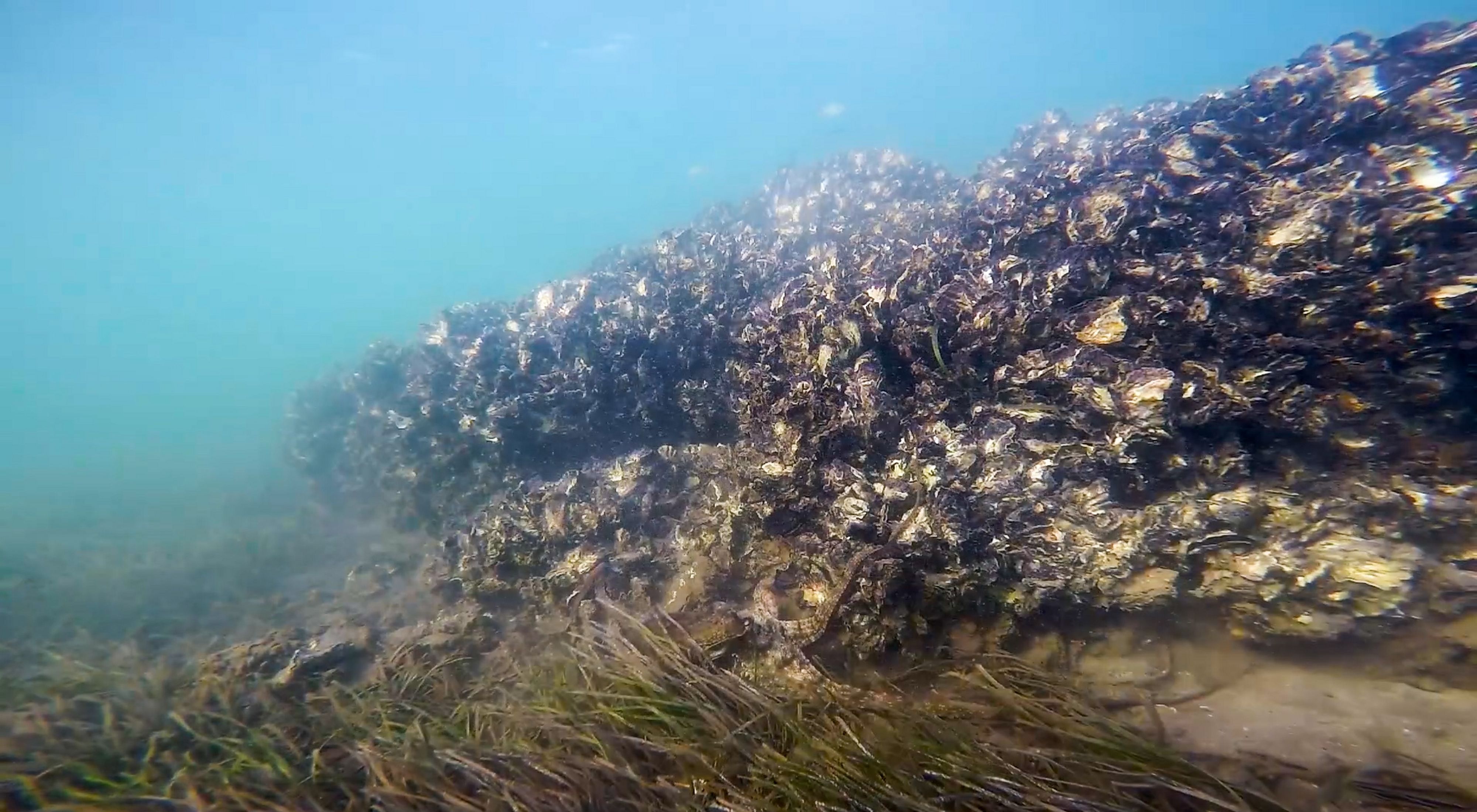Media Contacts
-
Laura Griffin
Currie Communications
Email: laura@curriecommunications.com.au
A project to rebuild a near-extinct marine ecosystem has been celebrated at Australia’s leading science awards.
Dubbed the ‘Oscars’ of Australian science, the Australian Museum Eureka Prizes were awarded at an online ceremony last night.
The Nature Conservancy, along with its partners James Cook University, University of Adelaide and University of Tasmania, supported by the NESP Marine Biodiversity Hub, are excited to have been awarded the Eureka Prize for Applied Environmental Research for their project ‘Rebuilding Australia’s Lost Shellfish Reefs’.
Shellfish reefs were once common around the coastline of southern Australia, but decades of commercial dredging, pollution and overfishing decimated them to the brink of extinction.
The project included research that documented the decline and provided the knowledge required to successfully restore them and their vital ecosystem services. Shellfish reefs provide food and shelter for fish and other marine species, filter water and protect shorelines.
Restoring shellfish reefs benefits local economies as well as the environment, by creating local jobs during construction and boosting commercial and recreational fishing as well as diving opportunities.
By making the bold commitment to rebuild 60 shellfish reefs alongside communities who need them most, The Nature Conservancy is leading Australia’s largest marine restoration initiative.
“Restoring these reefs is only possible with the support of governments, businesses and the community,” said Dr Chris Gillies, Program Director Oceans, The Nature Conservancy.
“It is wonderful that such an important national project, to which so many organisations and individuals have contributed, has won such a prestigious award.
“Thankfully, the ‘Rebuilding Australia’s Lost Shellfish Reefs’ project has shown shellfish reefs are one ecosystem that we can save from extinction and fully recover. In the process, creating hundreds of jobs, and helping to sustain our nature-based coastal communities and industries,” Dr Gillies said.
To rebuild the reefs, The Nature Conservancy and its partners lay a base of locally-sourced limestone rubble and recycled shells at carefully selected sites. They then release millions of baby oysters and mussels onto the reef bases. The reefs attract fish and other wildlife instantly and take seven to 10 years to mature.
This project is supported with funding from the Australian Government’s National Environmental Science Program and The Thomas Foundation.
More information
The Nature Conservancy is a global conservation organisation dedicated to conserving the lands and waters on which all life depends. Guided by science, we focus on getting things done efficiently and with the greatest positive impact for conservation. We’re a trusted organisation working in more than 70 countries and territories around the world on innovative solutions to our world’s toughest challenges so that nature and people can thrive together. To learn more about The Nature Conservancy in Australia, follow us on Facebook.
